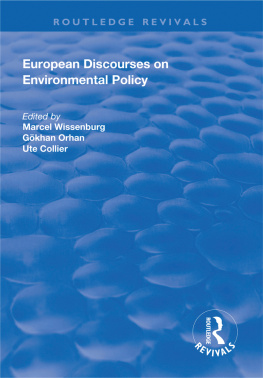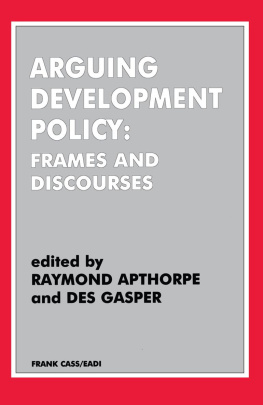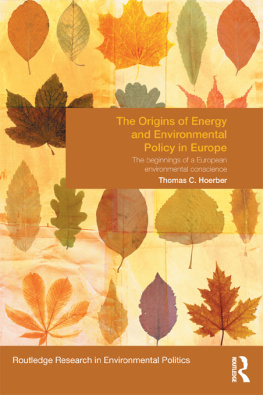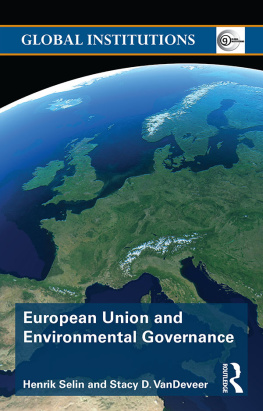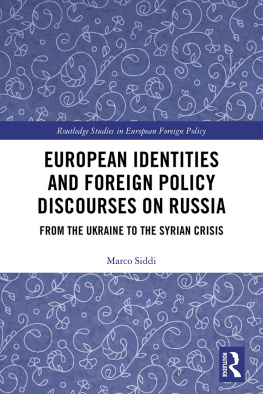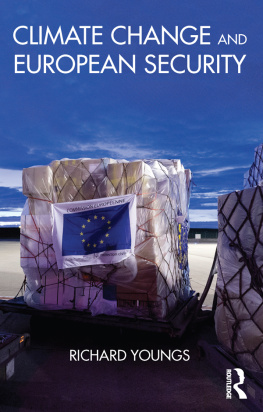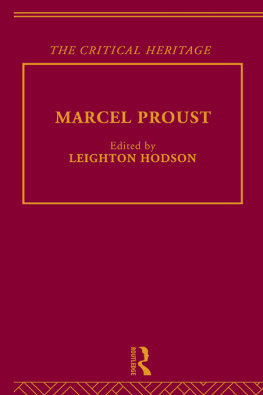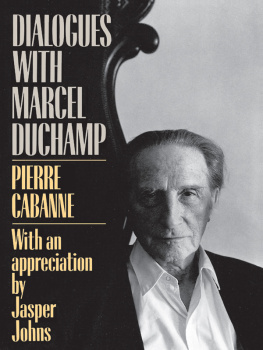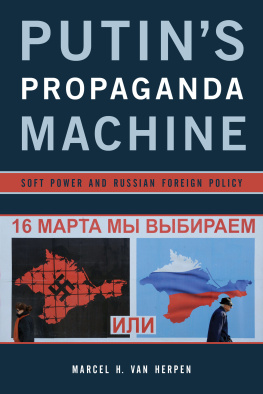First published 1999 by Ashgate Publishing
Reissued 2018 by Routledge
2 Park Square, Milton Park, Abingdon, Oxon OX14 4RN
711 Third Avenue, New York, NY 10017, USA
Routledge is an imprint of the Taylor & Francis Group, an informa business
Copyright Wissenburg, Orhan and Collier 1999
All rights reserved. No part of this book may be reprinted or reproduced or utilised in any form or by any electronic, mechanical, or other means, now known or hereafter invented, including photocopying and recording, or in any information storage or retrieval system, without permission in writing from the publishers.
Notice:
Product or corporate names may be trademarks or registered trademarks, and are used only for identification and explanation without intent to infringe.
Publisher's Note
The publisher has gone to great lengths to ensure the quality of this reprint but points out that some imperfections in the original copies may be apparent.
Disclaimer
The publisher has made every effort to trace copyright holders and welcomes correspondence from those they have been unable to contact.
A Library of Congress record exists under LLC control number: 99072595
ISBN 13: 978-1-138-31340-8 (hbk)
ISBN 13: 978-1-138-31447-4 (pbk)
ISBN 13: 978-0-429-45695-4 (ebk)
Dr. Susan Carr is Lecturer in the Systems Discipline and Researcher in the Centre for Technology Strategy at the Open University, Milton Keynes, UK. Correspondence: Centre for Technology Strategy, Open University, Milton Keynes MK7 6AA, UK. E-mail: S.Carr@open.ac.uk
Dr. Ute Collier is Climate Change Policy Officer with the World Wide Fund for Nature (WWF UK) in Godalming, Surrey, UK. Correspondence: WWF UK, Weyside Park, Catteshall Lane, Godalming, Surrey GU 7 1XR, UK. E-mail: UCollier@wwfnet.org
Dr Jan Eberg is a Research Fellow in the Department of Political Science at the University of Amsterdam, the Netherlands. Correspondence: Department of Political Science, University of Amsterdam, O.Z. Achterburgwal 237, 1012 DL Amsterdam, The Netherlands. E-mail: eberg@pscw.uva.nl
Brendan Flynn is a Lecturer in Comparative Politics with the Department of Political Science and Sociology, National University of Ireland at Galway. Correspondence: Department of Political Science and Sociology, National University of Ireland, Galway. Ireland. E-mail: flynbm@hotmail.com
Prof. Detlef Jahn is Research Professor in the Department of Economics and Politics, The Nottingham Trent University, Nottingham, UK. (England). Correspondence: Department of Economics and Politics, The Nottingham Trent University, Burton Street, Nottingham NG1 4BU, UK. E-mail: Detlef.Jahn@ntu.ac.uk
Dr. Andrew Jordan is Senior Research Associate in the School of Environmental Sciences at the University of East Anglia, Norwich, UK. Correspondence: CSERGE, School of Environmental Sciences, University of East Anglia, Norwich NR4 7TJ, UK. E-mail: a.jordan@uea.ac.uk
Dr. Les Levidow is a Research Fellow in the Centre for Technology Strategy at the Open University, Milton Keynes, UK. Correspondence: Centre for Technology Strategy, Open University, Milton Keynes MK7 6AA, UK. E-mail: Levidow@open.ac.uk
Gkhan Orhan completed his PhD at the Department of Government, University of Essex. He is a Lecturer at the Department of Public Administration at Balikesir University, Turkey. Correspondence: Balikesir niversitesi, Bandirma Iktisadi ve Idari Bilimler Fakltesi, Kamu Ynetimi Blm, Bandirma, Balikesir, Turkey. E-mail: Gorhan@balikesir.edu.tr
Dr. Paul Pestman is Research Associate in the Department of Environmental Policy Sciences at the University of Nijmegen, the Netherlands. Correspondence: Department of Environmental Policy Sciences, University of Nijmegen, P.O. Box 9108, 6500 HK Nijmegen, the Netherlands. E-mail: P.Pestman@BW.KUN.NL
Dr. Jan van Tatenhove is Lecturer in Environmental Policy Sciences at the University of Nijmegen, the Netherlands. Correspondence: Department of Environmental Policy Sciences, University of Nijmegen, P.O. Box 9108, 6500 HK Nijmegen, the Netherlands. E-mail: J.vanTatenhove@BW.KUN.NL
Prof. Albert Weale is a Fellow of the British Academy and Professor of Government at the University of Essex, Colchester, UK. Correspondence: Department of Government, University of Essex, Wivenhoe Park, Colchester C04 3SQ, UK. E-mail: Weala@essex.ac.uk
Dr. Marcel Wissenburg is Lecturer in Political Theory and the Philosophy of the Policy Sciences at the University of Nijmegen, the Netherlands. Correspondence: Department of Political Science, University of Nijmegen, P.O. Box 9108, 6500 HK Nijmegen, the Netherlands. E-mail: M.Wissenburg@BW.KUN.NL
ALBERT WEALE
According to one dominant paradigm in social science theory, the Interdisciplinary Network on Environment and Society (IRNES) ought not to exist. It is the product of voluntary action among a large number of busy, young scholars, all with pressing career priorities of their own. It organises scholarly meetings open to a wide range of new researchers, many of whom have to scour their own institutions for some support in order that they can attend. The constituencies that it serves are heterogeneous, coming from many disciplines and from diverse national backgrounds. The barriers to successful organisation are thus formidable. Of course, this is not the whole story. The UK's Economic and Social Research Council has been farsighted enough to provide some resources (congratulations to that all too often maligned institution), and the publications that IRNES has sponsored provide a wider readership for their work than research students often secure. Even so, rational choice theory tells us that voluntary action to provide public goods is rare. We should wonder, then, not only that IRNES exists but that it also flourishes.
The present volume is devoted to the topic of discourse in European environmental policy. The term 'discourse' denotes one of those marvellously flexible concepts that has managed to appeal to a wide range of theoretical traditions in the social sciences, including recent work in the policy sciences, studies of ideology, post-structuralism and Anglo-Saxon political theory drawing on linguistic philosophy. Its occurrence at the conjunction of such diverse theoretical traditions might suggest that its significance is difficult to pin down. Yet, it is the merit of the essays collected in this book that the reader comes to understand the different ways in which the understanding of discourse helps makes sense of European environmental policy.
In the first place, an emphasis upon discourse highlights the technical complexity of environmental policy, and therefore draws attention to the way in which a framework of concepts and understandings is necessary in order that policy learning can take place, either within different political groups in the same country or across national boundaries. In the absence of a discursive framework that at least partially fixes the understanding of what policy is feasible and effective, whether in the form, say, of the waste-management hierarchy or in the implications of the precautionary principle, policy makers and members of the attentive public are unable to evaluate prevailing practices and policies.


